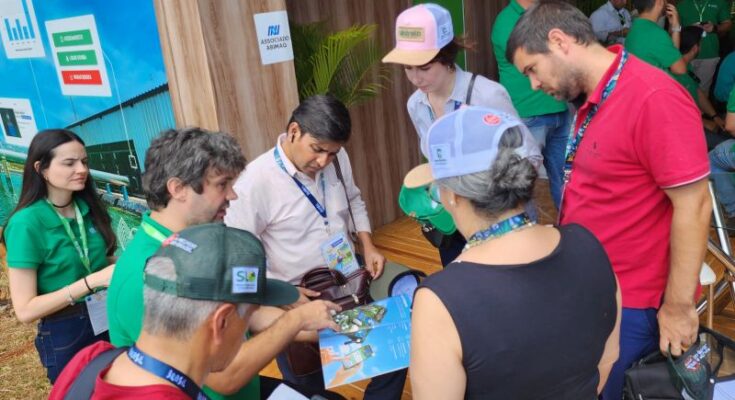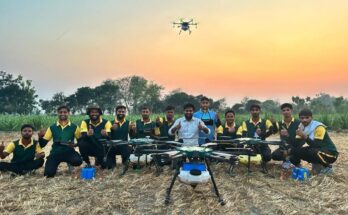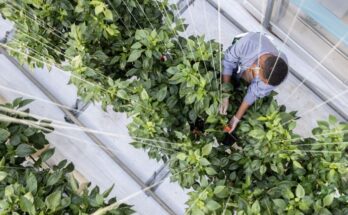Ribeirão Preto (SP), Brazil: Artificial Intelligence (AI) arrived with everything at Brazil Agrishow 2024. Several exhibiting brands presented technological facilities and innovative solutions to help rural producers make strategic decisions efficiently and effectively. New resources enable farmers to produce more and better, with fewer resources. AI is already part of processes such as collecting and processing sensitive and crucial information for the field, such as weather, geospatial data, crop and soil monitoring, production and productivity. All of this is still within the gate, aiming at the sustainability of processes and combining precision agriculture with decision-making agriculture.
To launch so many solutions, the brands exhibiting at the fair rely on R&D centres, which act as pillars to study, develop and test personalised solutions for the needs of each farmer or rancher. It is also worth highlighting that machine learning, acquired by Generative AI, can offer even more options and devices for the global demand for food caused by the growing population.
You may also like to read: Agrishow 2024 brings together international machinery companies with the most varied technologies
Embrapa Instrumentação, in partnership with agri-fintech Agrorobótica, developed the AGLIBS Artificial Intelligence Platform, a technology that integrates different software and advanced sensors that allow the digitalisation of soil and agricultural activities. The innovation enables access to precision agriculture and the commercialisation of carbon credits in the international voluntary market, thus allowing the measurement, reporting, verification and commercialisation of carbon in agriculture while managing soil fertility and plant nutrition.
It was developed in line with internationally accepted scientific criteria and is based on LIBS (Laser Induced Breakdown Spectroscopy) technology, the same technique that the North American Space Agency (NASA) used in robots to evaluate the soil on Planet Mars. For Embrapa researcher Débora Milori, who coordinates the National Agrophotonics Laboratory (Lanaf), LIBS is a fast, reproducible and clean spectrum analytical technique.
“It uses high-energy laser pulses to create a microplasma on the surface of the sample, and thus determine its chemical composition. As it is a direct analytical technique, it can be applied to a wide variety of samples in different physical states of matter”, explains Milori.
You may also like to read: New report shows agrifoodtech investments in India dipping to pre-pandemic levels
Cromai enters the third day of Brazil Agrishow highlighting Cromai Scan Weed, which identifies and classifies invasive plants, while Cromai Scan Growline corrects planting errors in sugarcane. Cromai Sentinel, in turn, automatically quantifies plant impurities. These technologies promote assertive decision-making, saving resources and improving operational efficiency in agricultural activities.
In the same vein, one of the highlights of Bosch‘s portfolio in the agricultural sector is One Smart Spray, a solution that allows the selective application of herbicides, detecting the presence of weeds in real-time, and spraying only where necessary. The technology is based on cameras with neural networks and AI.
Also regarding customisation, Bayer in collaboration with Microsoft showcased Agri-Copilot. Comparable to an ‘Agro ChatGPT’, software that uses AI to respond in an intuitive and personalised way to rural producers’ questions, is based on agricultural and environmental data sets.
At the Agrishow in Brazil, John Deere introduced, See & Spray Select, a smart spray system that uses AI, computer vision and machine learning across 30 cameras to identify and spray only weeds. The solution has an average of 56 per cent in herbicide savings, and in tests in Brazil, it reached 97 per cent.




